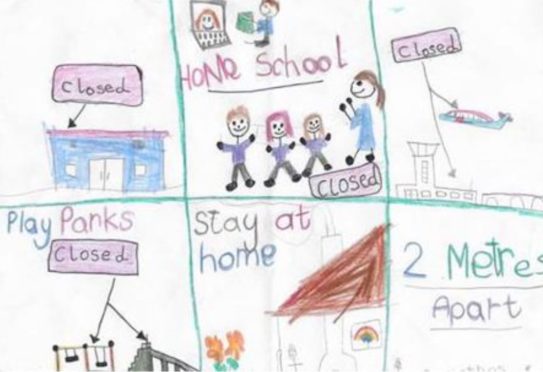A revealing selection of letters written by Highland youngsters during lockdown is to become an online resource for educators and a legacy for children of the future.
Letters from Lockdown were written from April to June and entered into a competition run by Highland Children and Young People’s Forum (HCYPF) as a way of listening to youngsters’ experiences during the Covid-19 crisis.
There are prizes for each age group donated in memory of Audrey Bowie, who had her childhood interrupted by WW2 and was evacuated to America.
She made a recording of her experience for her grandchildren, and this will be included in the online archive of the letters.
The rich seam of material has been analysed by Gillian Newman of the Highland Children’s Forum to identify what might help the young people in a future of further local lockdowns and to involve them in how to ‘build back better’.
She says the letters show the resilience of the youngsters and ‘their care for others in the community, their understanding of the impact on their own mental health and the mental health of their peers, the new life skills sought and their efforts to keep fit’.
The 185 letters came from pre-school, primary and secondary pupils with drawings, photos, collages, slide shows, videos and books.
Entries from primary children made up the bulk of the entries at 156, with 25 coming from secondary pupils, and four from pre-school.
The letters describe the crisis, the lockdown changes- more time with parents and siblings; home schooling- some hated, some loved it; activities- lots of baking and gardening; the things they missed- friends and grandparents; the positives – appreciation of nature and of NHS and key workers; and the feelings it invoked- stress, worry, anger, frustration and anxiety being highest among the secondary pupils.
The children were also asked to envisage the future: ‘I can’t wait for it to be a happy ending’ writes Zeb, age 6.
In his foreword to the collection, Children and Young People’s commissioner Bruce Adamson said Covid-19 has had a “disproportionate impact on children, who have made incredible sacrifices over the lock down period”.
“Their voices and experiences were largely absent from decision making at the early stages of the pandemic, which makes the Letters from Lockdown project so important.”
